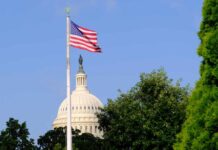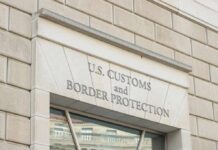
President Trump’s direct demand for 17 top pharmaceutical companies to lower prescription drug prices has sparked a fierce nationwide debate over affordability, innovation, and the proper limits of executive power.
Story Snapshot
- Trump sent public letters to 17 pharmaceutical CEOs, demanding lower U.S. drug prices by September 29.
- The administration threatens regulatory action if companies fail to comply with new pricing expectations.
- Some drugmakers have already announced plans for lower-cost direct-to-patient sales programs.
- Pharmaceutical stocks dipped and the entire industry is on high alert amid mounting pressure.
Trump Administration Challenges Big Pharma on Drug Prices
President Donald Trump, keeping a central campaign promise, formally sent letters on July 31, 2025, to the CEOs of 17 major pharmaceutical giants, including Pfizer, Johnson & Johnson, and AstraZeneca, ordering them to commit to significant U.S. prescription drug price reductions within 60 days. The administration published these letters publicly and set a hard deadline of September 29 for companies to respond, insisting that American prices should be no higher than those in other wealthy nations. If companies fail to comply, the White House has made clear it will pursue sweeping regulatory or executive action to force the issue.
Trump sends 17 pharmaceutical companies letters calling for them to commit to lowering U.S. prescription drug prices https://t.co/mDCuNeW9xA
— One America News (@OANN) July 31, 2025
The White House’s approach includes the “most-favored-nation” (MFN) pricing model, which would require U.S. drug prices to match or undercut those abroad. This bold strategy follows a Trump executive order in May 2025, reviving a controversial plan originally blocked in court during his first term. The administration’s public pressure campaign is a direct response to years of mounting outrage over sky-high drug costs that have burdened American families, threatened seniors’ access to life-saving medication, and put U.S. consumers at a global disadvantage. Industry leaders now face a stark choice: deliver lower prices or risk facing unprecedented federal intervention.
Watch: Trump posts letters to 17 pharmaceutical companies about drug prices
Pharmaceutical Industry Scrambles to Respond
In the immediate aftermath of the announcement, stock prices for several major drugmakers dropped sharply, reflecting investor concern over future profit margins and regulatory risk. Some companies, such as Pfizer and Bristol Myers Squibb, have already unveiled pilot programs to offer certain drugs at lower prices directly to American patients, a move seen as both a concession to public pressure and a strategic attempt to avoid harsher government action. Pfizer issued a statement saying it is “working with the administration to increase access and affordability for American patients,signaling an openness to negotiation but stopping short of committing to across-the-board price reductions.
The pharmaceutical industry wields enormous lobbying power in Washington and has historically resisted attempts to impose direct price controls, arguing that high U.S. prices fund research and innovation for breakthrough therapies. The confrontation has renewed calls for bold reform and heightened scrutiny on the industry’s pricing practices.
Regulatory Showdown Looms as September Deadline Approaches
With the September 29 deadline looming, the Trump administration is signaling no intention of backing down. The White House has reiterated that, “If companies refuse to step up, the federal government will deploy every tool in our arsenal,” referencing a suite of potential regulatory and executive actions. This could include new pricing regulations, expanded Medicare negotiation, or even importation of cheaper drugs from abroad. The Department of Health and Human Services (HHS) has been tasked with monitoring compliance and preparing contingency plans should the pharmaceutical giants resist the administration’s demands.

























